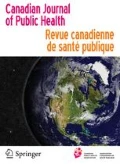Résumé
L’étude des conséquences de la mondialisation sur la santé des populations est au cœur de la santé mondiale. Ce faisant, la mondialisation conditionne également la mise en œuvre des projets de recherche et des interventions en santé mondiale, et les rapports sociaux inégalitaires qui s’y perpétuent. Le présent commentaire propose des réflexions sur des défis épistémologiques et politiques auxquels se confronte la santé mondiale. Celles-ci sont issues d’observations et de discussions pendant et après la Conférence canadienne sur la santé mondiale, tenue en novembre 2015. Durant cet événement, une volonté affirmée par la communauté internationale de promouvoir l’équité en santé pour tous et un meilleur partage des savoirs et des ressources au sein des partenariats s’est clairement exprimée. Ainsi, nous envisageons un avenir différent, plus intersectionnel et porteur d’espoir, en proposant une déconstruction de la biopolitique hégémonique des institutions du Nord, tout en mettant au cœur de nos actions les communautés et des partenariats francs, solides et susceptibles de perdurer. Pour ce faire, des pistes sont proposées. Celles-ci nous semblent essentielles à considérer, si l’on prône l’équité et la justice sociale et ce, en commençant par nos propres actions. Notre propos s’ancre dans les pratiques et les réflexions d’un groupe de candidates au PhD en santé publique, dans l’option en santé mondiale.
Abstract
The study of the impacts of globalization on population health is at the heart of global health. Globalization often affects the implementation of research and projects in global health and the unequal relationships that are perpetuated. This commentary shares our reflections on the epistemological and political challenges in relation to global health, emerging from observations and discussions during and after the November 2015 Canadian Conference on Global Health. During this event, delegates expressed a clear intent to promote health equity for all and the sharing of both resources and knowledge within partnerships. We envision a future for a different global health that is more intersectional and more promising. This vision requires the deconstruction of the hegemonic position of Northern institutions, putting populations back at the centre of attention, and honest, robust and sustainable partnerships. We propose alternatives which we consider key for the promotion of equity and social justice. The arguments put forth are embedded within the praxis and reflections of a group of PhD candidates in the Global Health option of a doctoral program in public health.
Références
Schrecker T, Labonté R, De Vogli R. Globalisation and health: The need for a global vision. Lancet 2008;372(9650):1670–76. doi: 10.1016/S0140-6736(08) 61691-8.
Koplan JP, Bond TC, Merson MH, Reddy KS, Rodriguez MH, Sewankambo NK, et al. Towards a common definition of global health. Lancet 2009;373(9679):1993–95. PMID: 19493564. doi: 10.1016/S0140-6736(09)60332-9.
Farmer P, Kleinman A, Kim J, Basilico M. Reimagining Global Health: An Introduction. Berkeley, Los Angeles, London: University of California Press, 2013.
Baum F. The New Public Health. Melbourne, Australia: Oxford University Press, 2016.
Ottersen OP, Dasgupta J, Blouin C, Buss P, Chongsuvivatwong V, Frenk J, et al. The political origins of health inequity: Prospects for change. Lancet 2014;383(9917):630–67. PMID: 24524782. doi: 10.1016/S0140-6736(13) 62407-1.
Petryna A. Clinical trials offshored: On private sector science and public health. BioSocieties 2007;2(1):21–40. doi: 10.1017/S1745855207005030.
Crane, JT. Unequal ‘partners’. AIDS, academia, and the rise of global health. Behemoth J Civilis 2010;3(3):78–97. doi: 10.1524/behe.2010.0021.
Canadian Coalition for Global Health Research. CCGHR Principles for Global Health Research, 2015. Available at: http://www.ccghr.ca/resources/principles-global-health-research/ (Accessed November 1, 2015).
Hasnida A, Borst RA, Johnson AM, Rahmani NR, van Esland S, Kok, MO. Making health systems research work: Time to shift funding to locally-led research in the South. Lancet Glob Health 2016;5(1):e22–24. doi: 10.1016/ S2214-109X(16)30331-X.
Sheikh K, Bennett SC, el Jardali F, Gotsadze G. Privilege and inclusivity in shaping Global Health agendas. Health Policy Plan 2017;32(3):303–4. PMID: 27935804. doi: 10.1093/heapol/czw146.
Nguyen V-K. Antiretroviral globalism, biopolitics and therapeutic citizenship. In: Ong A, Collier S (Eds.), Global Assemblages: Technology, Politics and Ethics as Anthropological Problems. Oxford, UK: Blackwell Publishing Ltd., 2005;124–44.
Hankivsky, OE. An Intersectionality-Based Policy Analysis Framework. Vancouver, BC: Institution for Intersectionality Research and Policy, Simon Fraser University, 2012.
Marmot M, Friel S, Bell R, Houweling TA, Taylor S, Health CoSDo. Closing the gap in a generation: Health equity through action on the social determinants of health. Lancet 2008;372(9650):1661–69. PMID: 18994664. doi: 10.1016/ S0140-6736(08)61690-6.
Adams V, Burke NJ, Whitmarsh I. Slow research: Thoughts for a movement in global health. Med Anthropol 2014;33(3):179–97. PMID: 24761973. doi: 10. 1080/01459740.2013.858335.
Mac-Seing M, Cleaver S. Time for Global Health to Unpack the Invisible Knapsack. Canadian Coalition for Global Health Research, 2015. Available at: http://www.ccghr.ca/blog/time-global-health-unpack-invisible-knapsack/ (Accessed December 6, 2015).
Author information
Authors and Affiliations
Corresponding author
Additional information
Remerciements: Nous remercions sincèrement Christina Zarowsky qui nous a encouragées tout au long du processus de réflexion ainsi qu’à Gabriel Girard pour son soutien précieux.
Conflit d’intérêts: Aucun à déclarer.
Rights and permissions
About this article
Cite this article
Mac-Seing, M., Osorio, C.P., Tine, S. et al. Une santé mondiale repensée : la perspective de futures chercheuses-praticiennes. Can J Public Health 108, 452–454 (2017). https://doi.org/10.17269/CJPH.108.5914
Received:
Accepted:
Published:
Issue Date:
DOI: https://doi.org/10.17269/CJPH.108.5914

